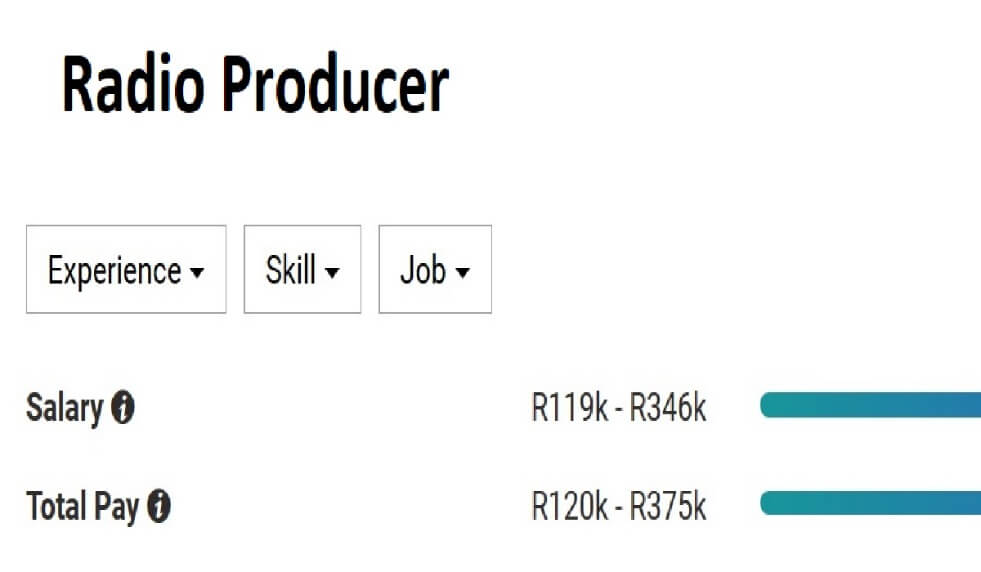
Program Overview
The purpose of this Qualification is for learners to be able to produce radio programs. The National Certificate in Radio Production at NQF Level 5 is generic across commercial, public and community service fields. The community impact of this Qualification includes the presentation of job opportunities to which all-cultural groups have access, through community radio broadcasting.
The Qualification is also wide ranging, cutting across a broad spectrum of the economy. The Qualification was designed to accommodate radio programs relevant to all audiences. The Qualification aims at enabling learners to be employable in all three sectors (public, commercial and community). Production, packaging, journalistic, content development are competencies required across all three tiers of broadcasting and the qualification will allow the competent learners to be employable in all sectors of radio not just community radio.
The Qualification will enable the learners to make value judgements; packaging calls for putting elements together in a unique and creative manner, producing calls for a process of research, conceiving ideas and actualizing those ideas. This Qualification requires learners not just to make products but also to be able to develop content for radio broadcasts.
Qualifying learners are capable of:
- Operating within relevant legislative frameworks.
- Operating a variety of studio and field recording and production audio equipments.
- Building resource networks relevant to radio productions.
- Producing live and studio broadcasting.
- Generating and pitching ideas for programmes and items for transmission.
- Researching content for radio broadcasts.
- Scriptwriting a programme.
- Operating a variety of studio and field recording and production audio equipment.
- Producing live and studio programmes and items for transmission.
- Editing and mixing programmes and items for transmission.
- Presenting radio programmes/items (generate unit standard).
- Interviewing guests/panels/content providers.
Why study with us?
We provide high quality academic trainings that will enable you to get qualified in your chosen field; you will also be provided with a solid foundation to help you build your career or business. We’ll help you achieve your ambitions no matter how big they are and at the same time open your mind to possibilities you didn’t even know existed. Our standards are very high yet, we are easily accessible and affordable to everyone irrespective of their socio-economic background.
Entry Requirements
- Grade 12 – Matric,
- A senior certificate or
- National Certificate (N3) or a relevant Nated equivalent qualification
- International students with Senior School Certificate can apply.
The following learning is assumed to be in place before embarking on this Qualification:
- Language and communication competence at NQF Level 4.
- Mathematical literacy at NQF Level 4.
- Computer literacy at NQF Level 1.
PROGRAM MODULES
- End User Computing I
- Radio Script Analysis
- Fundamentals of Communication
- Fundamentals of Numeracy
- Fundamentals of Language
- Fundamentals of Radio
- Sound Operations
- Radio Interviews
- Broadcast Equipment Operations
- Radio Program Proposal
- Scripts Writing
- Sound Engineering
- End User Computing 2
- Media Law & Ethics
- Sound Editing
- Panel Discussions
- Sound Mixing & Production
- Outside Broadcasting
- Live Broadcasting
- Pre-recorded Programs Production
- Radio Drama Production
Internship Requirement
This programme requires that the student undertakes an internship for a minimum of 12 months in relevant industry after completing the in-class academic study. There is an opportunity for job placement assistance through our industry network after graduating depending on availability.
Qualification Obtainable
On completion of the program, student will receive a certificate for level completed. Qualifications are issued by MICT SETA – Media, Information and Communication Technologies Sector Education and Training Authority.
Program Accreditation Information
by MICT SETA – Media, Information and Communication Technologies Sector Education and Training Authority accreditation No: ACC/2016/07/0083
Department of Higher Education and Training accreditation No: 2019/FE07/011
Duration, Study Mode & Intake Dates
Full Time
- Study Duration: 18 – 24 months
- Admission dates: January and July every year
Online & Part Time
- Duration: 18 – 24 months
- Admission dates: January and July every year
Career Opportunities
- Radio program producer
- Radio broadcaster/presenter
- Radio Continuity announcer
- Programming officer
- Radio Commercial producer
- Radio broadcast journalist
Related Industry Salary for graduates of Radio Production

